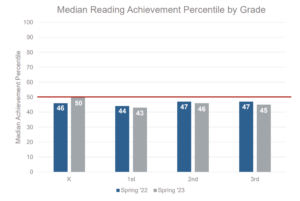
The Ed-Watch series is designed to increase access to information on what decisions
are being made regarding public education in Clark County and Nevada.
Nevada State Board of Education
What is the State Board of Education & what are they responsible for? The Nevada State Board of Education adopts regulations based on Nevada laws, which are passed down to individual school districts in Nevada to implement. The Board has 11 total (7 appointed and 4 publicly elected) members.
How often does the State Board meet? The Nevada State Board of Education meets once per month on Wednesdays at 9:00 AM or 2:00 PM. Click here to see the 2022 Board Meeting Schedule. Click here to visit Hope For Nevada’s #NVEd Calendar.
Can community members engage at State Board Meetings? A time for public comment is provided at the beginning (for agenda items) and at the conclusion (on any matter) of each Board meeting. Members of the public may provide public comment in writing via email; public comment will be accepted via email for the duration of the meeting and shared with the State Board of Education during the public comment periods. Public comment may be emailed to NVBoardED@doe.nv.gov.
Click here for a list of all State Board Members.
Wednesday, October 4, 2023
Nevada State Board of Education Meeting
Click here to see the regular SBOE meeting agenda.
Click here to watch the meeting playback.
What happened at the regular meeting?
Public Comment #1
- Concerns regarding high school start times
- Student traffic safety regarding shifting school start times
- Transportation concerns regarding shifting school start times
- Support for adjusting school start times due to student health concerns
- SB 282 implementation
- Concerns regarding the Read by Grade 3 cut score
Vice President’s Report
- Recognition of Week of Respect and Mental Illness Awareness Week
- Gratitude for the National Equity Project trainings
- Upcoming presentation from the Nevada System of Higher Education
Superintendent’s Report
Highlights included:
- Transportation Update: The State Board approves materials for transportation; $7 million has been set aside each year for the next biennium for charter school transportation, with 10 applications approved so far and others under consideration at the State Public Charter School Authority’s board meeting next Friday, October 13.
- Acing Accountability (SB 98): New accountability measures have been introduced by the State to ensure new funds are spent in a way that impacts student outcomes; it does not involved any additional testing for students. A dashboard will be implemented to measure how schools and districts are performing against these accountability metrics.
- Nevada Department of Education Updates: The Office of Inclusive Education was awarded $9.9 million for the Disability Innovation Fund. An additional $3.5 million grant was awarded to the Office of Assessment, Data Systems and Accountability for improvements to its data systems.
Board Approved the Consent Agenda
Highlights included:
- Approval of the Class Size Reduction Report
- Approval of the July 6 College and Career Ready Subcommittee meeting minutes
- Approval of the April 15 School Start Time minutes
- Revocation of two educators’ licenses
Review the consent agenda.
Board Approved Draft Regulation Language for High School Start Time Regulations
The Board reviewed a revised draft of the proposed regulation language for staggered and later start times for high schools that currently begin prior to 8:00 a.m. It states that school districts and charter schools that currently have high schools that begin before 8:00 a.m. must provide alternative options for families to address potentially negative impacts of early start times on student health, well-being, and academic performance.
A waiver will be available for schools facing unique challenges. After discussion, implementation timelines were shifted to begin in the 2025-26 school year, with a gradual approach of 35% of high schools within each district and charter school to offer alternative start time options at that time. The next year, an additional 25% of high schools will be required to implement these alternative options. A survey process will also be employed by each district and charter school to each school community, including the student body to gather feedback on current start times, adjustments, and other considerations (such as athletics, extracurricular activities, and family needs).
The document will be submitted to the Legislative Counsel Bureau to be rewritten in NAC-compatible language and will be sent back to the Board for a public hearing. Following that, the Legislative Commission will need to review and approve the regulation.
Explore the revised language.
Board Discussed the Creation of the State Board of Education Student Advisory Committee
The Board reviewed the creation of a Nevada Student Advisory Board for more direct communication between students and the Board. The goal is approximately 40 students statewide, appointed through an application process. The Student Advisory Board would convene on a monthly basis and focus on the upcoming agenda items of the Board of Education’s meeting. The Student Advisory Board would also craft a list of prioritized issues pertaining to Nevada students, and would fall under the purview of the Superintendent’s office.
Explore the draft document.
Board Discussed the Reorganization of the Clark County School District Training
The Board heard from Clark County School District on its approved reorganization training and resources, as required by regulation. They are also available on the District website, and training for mandatory participants is underway. The training is specific to the 2023-24 school year, as Senate Bill 282 will require some updates.
The materials include an overview, specific roles and responsibilities of different stakeholders, information relating to School Organizational Teams, resources SOTs can use as part of their responsibilities, and specific processes and procedures.
Explore the approved training material.
Board Discussed Read by Grade 3 and MAP Assessment Data
The Board reviewed Read by 3 and MAP Growth results. Read by 3 is a program to improve student achievement by ensuring that all Nevada public school students read at grade level by the end of third grade. MAP is an interim assessment typically given in the fall, winter, and spring, administered to over 12 million students nationwide. Student scores at or below the 40th percentile on the MAP Growth reading assessment generate additional support for students reading below grade level.
Overall, there is a slight decrease in reading achievement between spring 2022 and spring of 2023, as indicated by the chart below. Staff also noted a significant increase in the number of students taking the assessment from 2022 to 2023.

Further breakdowns by kindergarten, first, and second grade are also provided in the presentation materials (available below). There are achievement disparities among different student groups, as well.
Explore the presentation.
Board Discussed the Smarter Balanced Assessment Results, Nevada School Performance Framework, and Star Ratings
The Smarter Balanced Assessment (SBAC) participation rates statewide were 98.1% in English Language Arts (ELA) and 97.9% in math. ELA proficiency rates in 2022-23 were 41%, down from 43.7% in the 2021-22 school year. Math proficiency rates in 2022-23 were 31.3%, an increase from the 2021-22 school year (29.8%). Breakdowns by school district and by student groups was also provided in the presentation (available below).
Under the Nevada School Performance Framework (NSPF), each public school is issued an index score each year based on school performance measures (detailed below). A school’s star rating is associated with their index score.
- Elementary School: Academic achievement, growth, English Language proficiency, closing opportunity gaps, and student engagement
- Middle School: Academic achievement, growth, English Language proficiency, closing opportunity gaps, and student engagement (at a higher points value than elementary school)
- High School: Academic achievement, graduation rates, English Language proficiency, college and career readiness, and student engagement
Overall, in 2022-23, 85 schools were rated as five-star (9.8%); 79 schools were rated four-star (9.2%), 179 schools were rated as three-star (20.7%), 195 schools were rated as two-star (22.6%), and 223 schools were rated as one-star (25.8%). There were 102 schools, or 11.8%, that were not rated.
Explore the presentation.
Board Received a Demonstration on the Nevada System of Higher Education’s Data Dashboard
The Board received a presentation on NSHE’s College Readiness Data Dashboard. The Dashboard examines post-secondary enrollment and average ACT scores for recent Nevada high school graduates. It is available by clicking here.
Available on the Dashboard are resources, definitions, and methodology; graduates by diploma type; graduates by school district; graduates’ continuation after high school; average ACT scores by diploma type; continuation by different student groups and populations; and graduates’ continuation to NSHE institutions. Additional snapshots are also available using the Dashboard.
In the 2020-21 school year (the most recent presented), 36.1% of graduates continued to an NSHE institution within a year following graduation. In 2020-21, 24% of graduates continued to the workforce within a year following graduation; 27.4% of graduates were unknown in their continuation path within a year following graduation; and 12.5% continued to an “other” continuation pathway within a year following graduation.
Explore the presentation.
Board Discussed Future Agenda Items
Suggestions for future agenda items include an update on the Statewide Plan for the Improvement of Pupils, restorative justice practices, school improvement designations and status, kindergarten start times, District successes, and Read by Grade 3 cut scores.
Public Comment #2
- Smaller school districts to serve differing geographies
- Concerns regarding school scheduling issues at Moapa Valley High School
- Concerns regarding lack of communication between parents and CCSD administration
- Student access to high-quality schools and school equity pertaining to block scheduling at Moapa Valley High School
- Student concerns regarding the proposed high school start time regulations
- Concerns regarding the proposed high school start time regulations
The next Board of Education meeting is scheduled on Wednesday, November 1, at 2:00 p.m.
